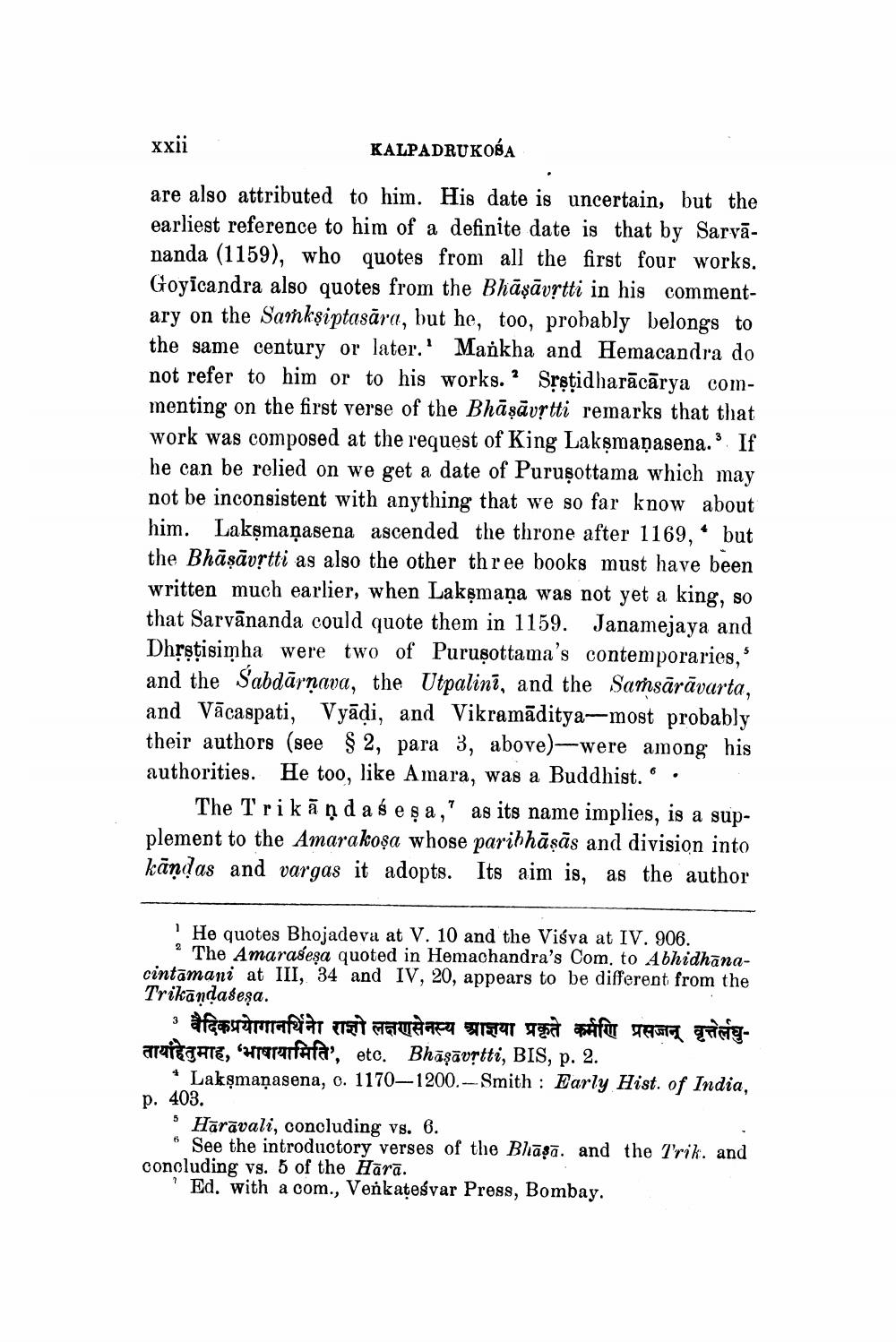________________
xxii
KALPADRUKOSA
are also attributed to him. His date is uncertain, but the earliest reference to him of a definite date is that by Sarvānanda (1159), who quotes from all the first four works. Goyicandra also quotes from the Bhāṣāvstti in his commentary on the Sainkşiptasāra, but he, too, probably belongs to the same century or later.' Mankha and Hemacandra do not refer to him or to his works. ? Srstid harācārya commenting on the first verse of the Bhāṣāvrtti remarks that that work was composed at the request of King Lakşmaṇasena. If he can be relied on we get a date of Puruşottama which may not be inconsistent with anything that we so far know about him. Lakṣmaṇasena ascended the throne after 1169, but the Bhāsāvrtti as also the other three books must have been written much earlier, when Lakşmaņa was not yet a king, so that Sarvānanda could quote them in 1159. Janamejaya and Dhrstisimha were two of Puruşottama's contemporaries,' and the Sabdārņava, the Utpalinē, and the Samsārāvarta, and Vācaspati, Vyādi, and Vikramāditya-most probably their authors (see $ 2, para 3, above)-were among his authorities. He too, like Amara, was a Buddhist. .
The Trikā ņ das e şa,' as its name implies, is a supplement to the Amarakoşa whose paribhāṣās and division into kāņdas and vargas it adopts. Its aim is, as the author
He quotes Bhojadeva at V. 10 and the Viśva at IV. 906. 2 The Amaraseşa quoted in Hemachandra's Com. to Abhidhānacintamani at III, 34 and IV, 20, appears to be different from the Trikāndateşa.
3 वैदिकप्रयोगानथिनो राज्ञो लक्षणसेनस्य आज्ञया प्रकृते कर्मणि प्रसजन् वृत्तेलघुTHIETATE, Cherafafa', etc. Bhāṣāvștti, BIS, p. 2.
* Lakşmaņasena, c. 1170—1200.-Smith : Early Hist. of India, p. 403.
* Haravali, concluding vs. 6.
* See the introductory verses of the Bhāṣā. and the Trik. and concluding vs. 5 of the Harā.
Ed. with a com., Venkatesyar Press, Bombay.




